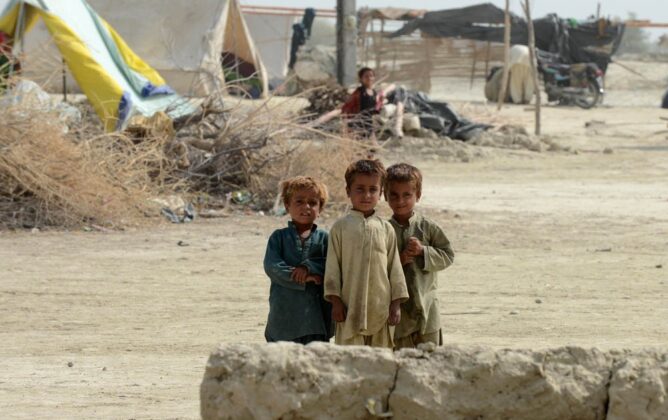
Pakistan is currently going through a multi-dimensional crisis – a broken polity, a flailing economy, and a radicalized society. To pull through, the country’s leadership – civilian and military – needs to accept that it’s time for change.
In a recent column, academic and public intellectual, Pervez Hoodbhoy notes: “Pakistan’s geopolitical importance has dwindled and nukes don’t impress anybody. A crazy foreign policy — in particular waging covert wars against neighbours — is no longer an option. To switch from a war economy to a peacetime one will not be easy. But now that America has exited and China refuses to step into its shoes, there is no other option.”
As Hoodbhoy points out, while Pakistan’s elite will survive the current economic crisis, “for millions of ordinary people, collapse has halved their pensions and these could come to mean nothing. The lowest strata of society now faces the spectre of starvation. Beggary has visibly multiplied. Worse is coming.”
To prevent mayhem and chaos, Hoodbhoy argues that any interim government needs to accept that things will be tough in the short term. It must “show empathy for those crushed by the inflationary burden. Throwing bags of flour from a moving truck — and so initiating food riots — is not the answer. Wealth pumps taking from the poor and giving to the rich are still working away. To devise and implement highly targeted subsidies that cannot be misused has become urgent.”
Next, the government needs to “plug loopholes allowing tax evaders to skate around existing laws. In particular, for agriculture to go untaxed and awarding special concessions to military businesses is nonsensical. Brazen rejection of taxation by shopkeepers and retailers must be overcome — by force if need be.”
There is need, Hoodbhoy clarifies, to “shrink the vastly overstaffed federal government by about two-thirds. Logic says that the 18th Amendment would have resulted in a smaller federal government but, on the contrary, the size has since doubled.”
Finally, “the May 9 rioters were not TTP terrorists and should not be tried by anti-terrorism courts. Punishing them is perhaps justifiable, but only after they are allowed to defend themselves in fair, transparent trials with access to their legal counsels.”
In conclusion, Hoodbhoy warns “Imran Khan is paying the price for his hubris and arrogance. He is unlikely to get a second chance. But this is a time for somber reflection, not rejoicing. We must understand how hard the road ahead is. If by miracle some kind of unity emerges at the political level, Pakistan will still be stuck with dysfunctional institutions and a broken economy. But if we remain as badly divided as we presently are, today’s grim situation will get a lot grimmer.”
![]()





